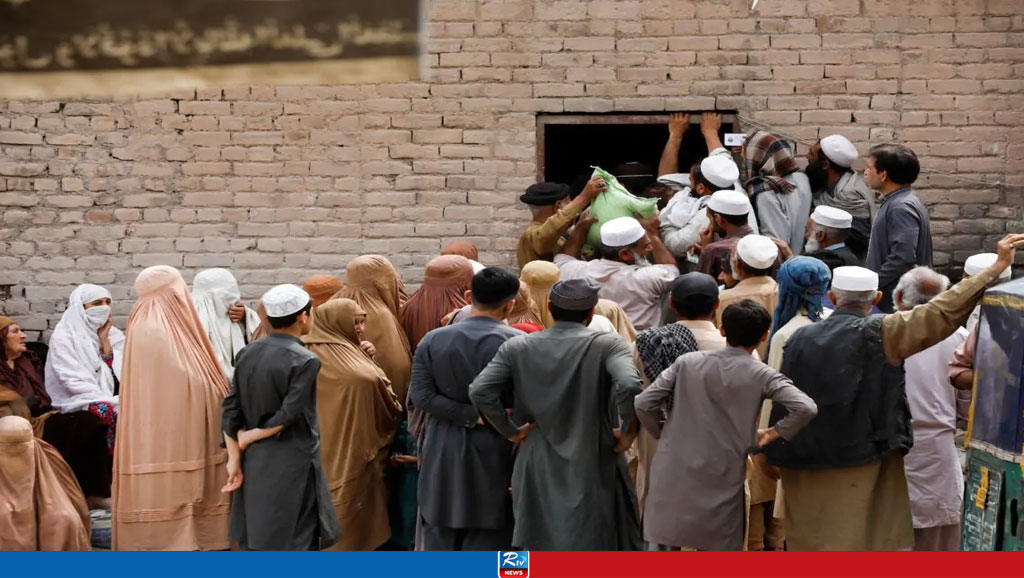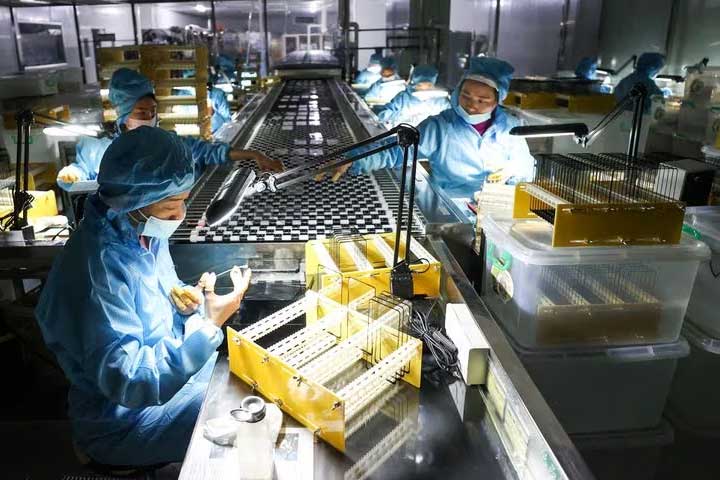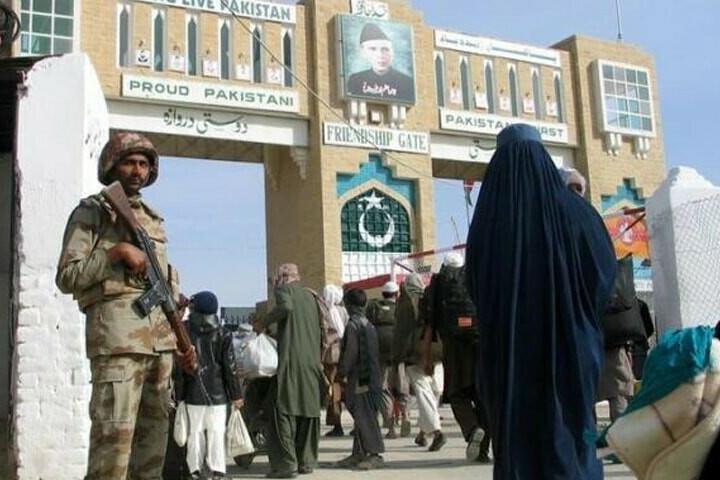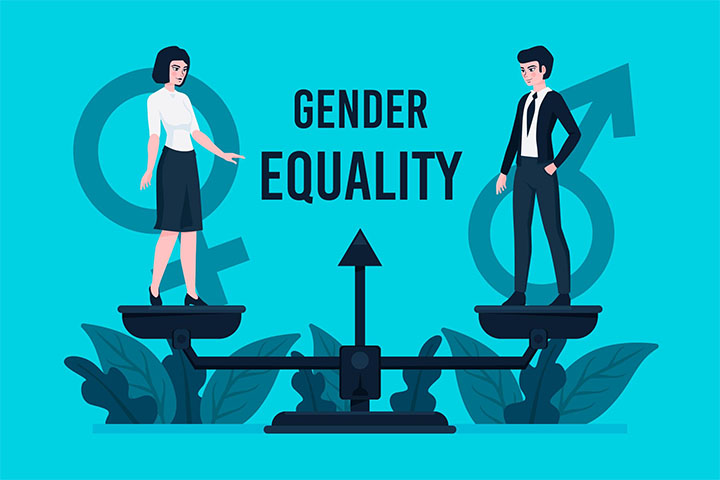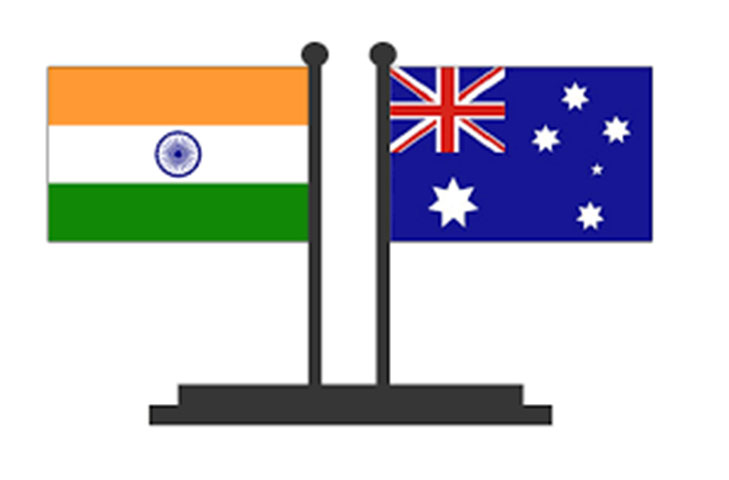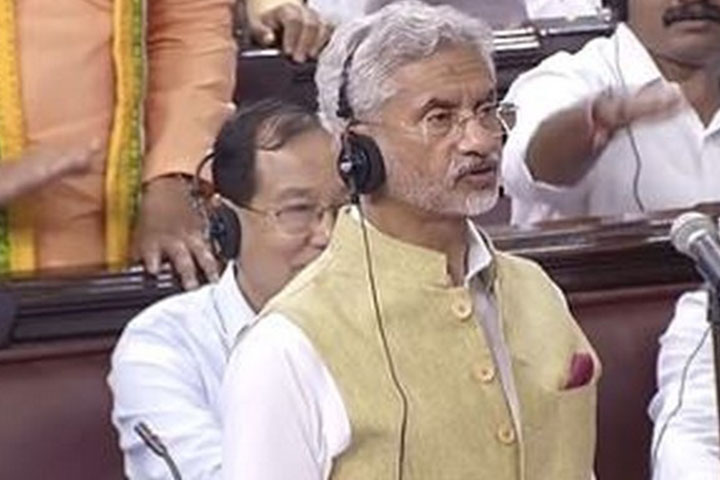India, US to work towards broader, deeper bilateral drug policy framework
India and the United States on Thursday agreed to work towards a broader and deeper bilateral Drug Policy Framework for the 21st Century, the Biden administration said after talks between officials from the two countries.
"What we've really worked on over the last couple of days is the three pillars. One is the counter-narcotics and the work to do to disrupt the networks of traffickers and producers of illicit drugs," Dr Rahul Gupta, director of the Office of National Drug Control Policy, told PTI in an interview after the conclusion of the fourth annual meeting of the US-India Counternarcotics Working Group (CNWG) here.
"The second one is to work on drug demand reduction and harm-reduction. That includes looking at not only how we help people who are suffering from addiction but prevent addiction in the first place, and at the same time work on things like workforce shortages," said Dr Gupta who is the first physician to serve in the role. The India delegation was led by Director-General of Narcotics Control Bureau (NCB) Satya Narayan Pradhan.
According to Dr Gupta, the third pillar really is ensuring that there is a pharmaceutical supply chain and then thriving pharmaceutical industry.
"When we do all of these pillars, it creates the framework for the 21st century between the two countries that poses and postures the two nations as global leaders in this area. It is really important because at a time when both in the United States, where 100,000 Americans are perishing a year, but also this disease and this issue is not something that has not affected India either, it important that the two countries work not only for the betterment of both nations, but also for the global benefit," Dr Gupta said.
During the two-day meeting, according to a White House statement, the delegations discussed President Joe Biden and Prime Minister Narendra Modi's joint commitment to work toward a broader and deeper bilateral Drug Policy Framework for the 21st Century.
Under this framework, both countries plan to expand cooperation and collaboration to disrupt the illicit production and international trafficking of illicit drugs, including synthetic drugs, such as fentanyl and amphetamine-type stimulants and illicit use of their precursors, the media statement said.
The two-day meeting on Wednesday was opened by Dr Gupta, US Ambassador to India Eric Garcetti, and Under Secretary of State for Civilian Security, Democracy, and Human Rights Uzra Zeya.
The US co-leads for the meeting were ONDCP Senior Advisor Kemp Chester, Acting Assistant Secretary of State for the Bureau of International Narcotics and Law Enforcement Affairs Lisa Johnson, and Deputy Assistant Attorney General Jennifer Hodge.
The Indian delegation was led by NCB DG Pradhan and included Deputy Chief of Mission for the Embassy of India Ambassador Sripriya Ranganathan, and Joint Secretary for the Ministry of Home Affairs (MHA) Shri Prakash.
"The leaders committed to strengthening our bilateral drug policy relationship, one that goes beyond just counternarcotics to one with a more forward-looking and affirmative vision – and we are working to deliver on that commitment. Together, we will prevent and treat addiction, disrupt the global trafficking of illicit drugs, and create safe, healthy, and prosperous communities for both nations," Gupta said in the White House statement.
India, he said, has joined the Global Coalition Against Synthetic Drugs that includes more than 80 nations and 11 international organizations.
"We really appreciate India's leadership as well in becoming that global leader, not only for becoming the pharmacy of the world, but also in terms of disrupting illicit trafficking of drugs and production and making sure that we're all working together when it comes to diseases like addiction to address it and preventive," Dr Gupta told PTI.
Responding to a question, Dr Gupta said with increase in demand for the pharmaceutical products out of China, they have also seen a growth of the illicit chemical industry in China.
"And because today it's the major producer of these precursor chemicals that contribute to the production of fentanyl, production of other illicit synthetic drugs, we want to, all of us, it's in our interest to not repeat that mistake. India has an interest in making sure that that diversion control happens and it has a thriving pharmaceutical industry that it obviously is competing with and the Americans are able to take benefit out of that as India is obviously having a pharmaceutical supply for so many other countries. But part of that is working with agencies like the FDA, like DEA and others to ensure that that integrity is there," he said.
Describing the visit of Prime Minister Modi to the US last month as historic, Dr Gupta said whether it's defence, technology, people-to-people exchanges, health, various sectors that were discussed and agreed upon, "we are making significant progress in moving that forward".
"I think this visit was not only significant, but it will be remembered as one that was historic in nature and really turned the page in terms of having both countries work at a level unprecedented in history," he added.
Dr Gupta said Indian Americans have not remained untouched with drug menace in the US. Just this week, Vice President Kamala Harris convened a round table with eight state attorneys generals. "I moderated that conversation. Right before she did that, she met with parents of those youth who had passed away from overdose, one of whom was an Indian American, and this is something that is close to her," he said.
"This is something that she talked about in the public health crisis and why it's important for Indian Americans in this country and all of the population in this country to understand that this crisis doesn't care if you are living in rural or urban population, if you are rich or poor, brown, black or white, it doesn't care. It will affect everybody. So, it's very important, especially that we have conversations around the dinner table with our children. We understand the early signs that there may be something wrong, for example, if the social behaviour has changed for our kids or if academic performance has changed for others," he said.
India, US To Work Towards Broader, Deeper Bilateral Drug Policy Framework
Washington: India and the United States on Thursday agreed to work towards a broader and deeper bilateral Drug Policy Framework for the 21st Century, the Biden administration said after talks between officials from the two countries.
"What we've really worked on over the last couple of days is the three pillars. One is the counter-narcotics and the work to do to disrupt the networks of traffickers and producers of illicit drugs," Dr Rahul Gupta, director of the Office of National Drug Control Policy, told PTI in an interview after the conclusion of the fourth annual meeting of the US-India Counternarcotics Working Group (CNWG) here.
"The second one is to work on drug demand reduction and harm-reduction. That includes looking at not only how we help people who are suffering from addiction but prevent addiction in the first place, and at the same time work on things like workforce shortages," said Dr Gupta who is the first physician to serve in the role. The India delegation was led by Director-General of Narcotics Control Bureau (NCB) Satya Narayan Pradhan.
According to Dr Gupta, the third pillar really is ensuring that there is a pharmaceutical supply chain and then thriving pharmaceutical industry.
"When we do all of these pillars, it creates the framework for the 21st century between the two countries that poses and postures the two nations as global leaders in this area. It is really important because at a time when both in the United States, where 100,000 Americans are perishing a year, but also this disease and this issue is not something that has not affected India either, it important that the two countries work not only for the betterment of both nations, but also for the global benefit," Dr Gupta said.
During the two-day meeting, according to a White House statement, the delegations discussed President Joe Biden and Prime Minister Narendra Modi's joint commitment to work toward a broader and deeper bilateral Drug Policy Framework for the 21st Century.
Under this framework, both countries plan to expand cooperation and collaboration to disrupt the illicit production and international trafficking of illicit drugs, including synthetic drugs, such as fentanyl and amphetamine-type stimulants and illicit use of their precursors, the media statement said.
The two-day meeting on Wednesday was opened by Dr Gupta, US Ambassador to India Eric Garcetti, and Under Secretary of State for Civilian Security, Democracy, and Human Rights Uzra Zeya.
The US co-leads for the meeting were ONDCP Senior Advisor Kemp Chester, Acting Assistant Secretary of State for the Bureau of International Narcotics and Law Enforcement Affairs Lisa Johnson, and Deputy Assistant Attorney General Jennifer Hodge.
The Indian delegation was led by NCB DG Pradhan and included Deputy Chief of Mission for the Embassy of India Ambassador Sripriya Ranganathan, and Joint Secretary for the Ministry of Home Affairs (MHA) Shri Prakash.
"The leaders committed to strengthening our bilateral drug policy relationship, one that goes beyond just counternarcotics to one with a more forward-looking and affirmative vision – and we are working to deliver on that commitment. Together, we will prevent and treat addiction, disrupt the global trafficking of illicit drugs, and create safe, healthy, and prosperous communities for both nations," Gupta said in the White House statement.
India, he said, has joined the Global Coalition Against Synthetic Drugs that includes more than 80 nations and 11 international organizations.
"We really appreciate India's leadership as well in becoming that global leader, not only for becoming the pharmacy of the world, but also in terms of disrupting illicit trafficking of drugs and production and making sure that we're all working together when it comes to diseases like addiction to address it and preventive," Dr Gupta told PTI.
Responding to a question, Dr Gupta said with increase in demand for the pharmaceutical products out of China, they have also seen a growth of the illicit chemical industry in China.
"And because today it's the major producer of these precursor chemicals that contribute to the production of fentanyl, production of other illicit synthetic drugs, we want to, all of us, it's in our interest to not repeat that mistake. India has an interest in making sure that that diversion control happens and it has a thriving pharmaceutical industry that it obviously is competing with and the Americans are able to take benefit out of that as India is obviously having a pharmaceutical supply for so many other countries. But part of that is working with agencies like the FDA, like DEA and others to ensure that that integrity is there," he said.
Describing the visit of Prime Minister Modi to the US last month as historic, Dr Gupta said whether it's defence, technology, people-to-people exchanges, health, various sectors that were discussed and agreed upon, "we are making significant progress in moving that forward".
"I think this visit was not only significant, but it will be remembered as one that was historic in nature and really turned the page in terms of having both countries work at a level unprecedented in history," he added.
Dr Gupta said Indian Americans have not remained untouched with drug menace in the US. Just this week, Vice President Kamala Harris convened a round table with eight state attorneys generals. "I moderated that conversation. Right before she did that, she met with parents of those youth who had passed away from overdose, one of whom was an Indian American, and this is something that is close to her," he said.
"This is something that she talked about in the public health crisis and why it's important for Indian Americans in this country and all of the population in this country to understand that this crisis doesn't care if you are living in rural or urban population, if you are rich or poor, brown, black or white, it doesn't care. It will affect everybody. So, it's very important, especially that we have conversations around the dinner table with our children. We understand the early signs that there may be something wrong, for example, if the social behaviour has changed for our kids or if academic performance has changed for others," he said.
Source: NDTV
"So, the bottom line I think is important to understand that adolescents and teens, it's important to recognize when they're having challenges in life like most of us have and be supportive, be available, and make sure they can ask for help in that spirit, the Surgeon General (Dr Vivek Murthy) and I have put out an op-ed just last week in USA Today that talks about the importance of mental health and addiction and social isolation amongst youth and what can families do to help," he said.
22 Jul 2023,11:06

















 Live Tv
Live Tv

